Riz Ahmed in conversation: On the need to redefine Britishness, and 2020’s “revelations”
A look back on the year, including his underrated album The Long Goodbye
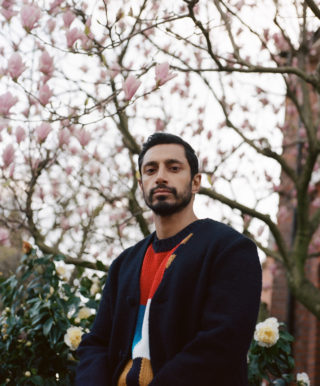
A look back on the year, including his underrated album The Long Goodbye
It’s Saturday night in London and I’m talking to Riz Ahmed on the phone. It’s morning in L.A. for him, and despite the early time he doesn’t sound at all groggy or lethargic. In fact, he sounds the complete opposite – his mind is sharp, fast and precise. Within minutes of speaking to him it’s no surprise that he went to Oxford University. He’s tremendously intelligent. His brain whirs and buzzes with astute observations and ideas, but his thoughtful nature also means that he’s mindful when explaining his thoughts, making sure that you’re right there with him; communicating, interrogating and being curious about the surrounding world.
We’ve had to move our call forward slightly. Riz is an incredibly busy man and is in the middle of filming, and although it’s clear through our conversation that he’s had time to pause and reflect this year, I instantly think how much of that break must have been somewhat short lived for him. Here I am, with my life still moving slowly in the later months of 2020, but he’s once again juggling to fit everything in. And he’s good at it.
He’s had a spectacular year. Mogul Mowgli, a film that he not only starred in but wrote and produced, is about to be released and has received sensational reviews, and his upcoming movie, Sound of Metal with Dakota Johnson, has also won over critics, creating a buzz at film festivals the year prior. With two such large pieces of work under his belt, it’s hard to comprehend how he’s also had the time to put out an album in 2020 and create a theatre performance of it with the Manchester International Festival (postponed due to COVID, now to be performed via a live stream earlier in December).
The album The Long Goodbye (originally released in March, with a deluxe reissue due later this month) is an accomplishment creatively, lyrically and sonically. The fusion between hip-hop and elements of his Pakistani heritage perfectly assimilate to bolster its concept: it’s a breakup album with Britain, in light of its recent xenophobia and apathy towards immigrants in the UK. Here, Britain becomes Britney, Riz’s toxic ex who asks him to move in and do a lot of her work, before blaming him for things going wrong and asking him to leave again. Displaced, this album speaks to the many immigrants in the country, wondering what to do next.
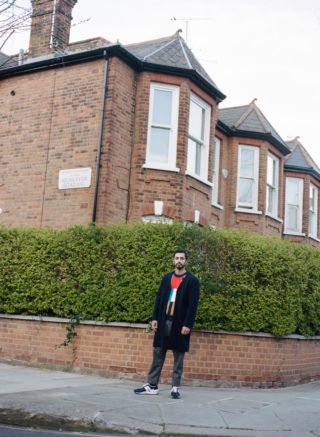
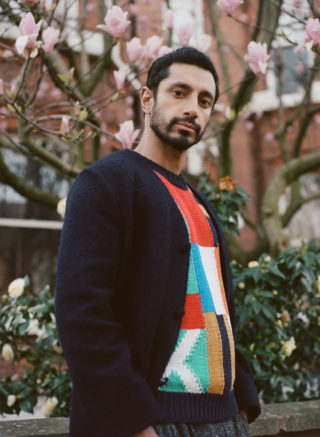
SP: Hey Riz, thank you so much for chatting to me. To start off, how did you find lockdown?
RA: I think it was an intense experience. I think it was a difficult one, but it was also quite a privileged one in that I didn’t have to expose myself personally to risk in the way that so many frontline workers had to. It was also I think a time that was quite revolutionary in lots of ways – coinciding with the month of Ramadan, which is the month of revelation as well. Ironically, and I think it was a moment where a lot of us were forced to reassess what really matters. Sometimes it takes a lightning bolt like that to stop everyone in their tracks and get off the treadmill a little bit about what they’re actually chasing. And it felt like suddenly so many of the things that we constantly run around for suddenly revealed themselves to be so superfluous.
SP: It’s so true. One minute we’re in the rat race and then you suddenly realise you don’t need to be necessarily doing things that were really important before.
RA: Yeah, I guess on a personal level, are you making time for family? Are you making time for fame? Are you making time for your spirituality? The things that really matter are our interconnectedness with our family and our wellbeing. I guess the biggest revelation for us is something that we’ve always known, it’s somewhere in our DNA. It’s how we’re programmed; that we’re not individuals. We’re part of a society. We’re part of a community, we’re part of the human family. I wrote this piece in Vogue and it was kind of based around this idea that, you know, people were talking about it being apocalyptic and I was looking into this idea that the word apocalypse means a revelation. It doesn’t mean this kind of big catastrophic ending. It means revelation.
SP: So would you say then that the main revelations you had during lockdown were about spirituality and family?
RA: I guess it was just about what really matters. It’s the stuff you take for granted. The stuff that money can’t buy, that our society isn’t geared towards valuing. What is most fundamental is our connectedness. Our community, rather than our individualism.
SP: That’s a lovely and very true insight. Let’s talk about your album, The Long Goodbye. It’s a fascinating album showing your heartbreak and anger towards Britain for the way it’s treated its immigrants. Britain becomes Britney, a toxic lover that you break up with. Where did the inspiration come from to frame this specifically as a breakup album?
RA: There’s this very established tradition Awali and in Sufi poetry, whether it’s Rumi or Ghalib or any of those poets, to write love poetry to a beloved about heartbreak, but it’s actually a metaphor. One poem that was a big influence on me was this poem by Faiz Ahmad Faiz, a Pakistani poet. He has a poem called My Love, Don’t Ask Me For The Love We Had Before and it’s an amazing poem because what he’s saying is, “Look, my love. We used to have puppy love, but I can’t go to that place anymore because I’ve seen too much. I’ve seen dead bodies stripped naked, half burnt, lying in the sewers. I’ve seen the centuries old conspiracies embroidered in our fate.” He’s saying to a woman, “Shit’s changed, I’ve been through some trauma. I’ve seen some shit. The world is too much of a dark place for us to run around in puppy love with our eyes closed.” But what I realised after reading and rereading is he’s probably talking to his country. Faiz was someone who was heartbroken, to some extent, about where the country was going.
SP: Carrying on with the theme of breaking up with Britain, it seems to be an album that’s specifically come about in light of Brexit?
RA: It wasn’t just purely Brexit, but I guess that’s the event you could point out for crystallising a lot of things. It feels like the post-9/11 creeping wave of intolerance; a kind of a sea change in public discourse. Actually, you could see it as a change or you could say as a return to normality, outside of the kind of bubble of the nineties. Perhaps that was the anomaly, that kind of nineties era of, “Hey, let’s celebrate multiculturalism!”, then 9/11 dividing the world up again into this Us versus Them narrative.
Yes, it’s Brexit, but it’s bigger than Brexit. It’s something that’s happening around the world. So, yes, the album is very much couched in my personal experience, and in specific references of the British context, but it’s very much an album that speaks to this this kind of xenophobic, nativist tidal wave that seems to be sweeping the world; one that discounts the history of these very countries and the histories of immigration and colonialism that built these countries. And, is rejecting the people that really helped build these countries and made them what they were. I think it speaks to something that’s a bit more of a global disease right now.
SP: Yeah, I completely agree. I was going to ask if there was a specific moment where you had enough, where you felt driven to create the album, but it sounds like it’s something that’s more of a build-up?
RA: It is. It’s built up through my own body of work from my first track, ‘Post 9/11 Blues’. It’s built up through what’s been happening in the world, the news, my own personal experiences. But I’ll point to one anecdote: I remember when I was having dinner with some people, a mixed group. We were talking about whether we should stay in the West and whether it would be safe; whether by the time of our kids and grandkids, they’d be cursing us like, “Why didn’t you leave?”. Are we at a turning point? And if so, actually where would we go? And so it kind of threw up three questions for me: 1) Where would you go? Where’s safe? This is global. 2) Why should I go? This is my home. And 3) Isn’t it mad that we are saying this and that it’s not a surprising thing to say? The surprising thing around the table was that everyone was like, “Yeah, I’ve been thinking that.”
SP: It’s funny you’re saying that because I’ve even thought that myself as a person of colour. A part of the album that made me chuckle was when someone asks you where you’re really from and you say Wembley. With these feelings of disillusion and abandonment in terms of Britain, has it changed how you feel about your identity? Do you still feel very British?
RA: If I say I feel very British what does that mean? Does that mean, “Okay, so I love the Queen! I’ve got a Union Jack hanging up at home”? Or does it mean my favourite dish is chicken tikka masala and I go shopping on Southall Broadway? All those things are British. I think our conception of what Britishness is desperately needs updating, stretching and reimagining to kind of align with the reality of what Britishness is and always has been. Britain has always been a patchwork; it always has been a nation of immigrants. It’s an island nation. The people who were here before the Celts, the Angles and the Saxons were immigrants. The first border patrol that was ever in England was a legion of North African troops fighting for the Italian Roman Empire. That was our first immigration control in this country, at Hadrian’s Wall, keeping the Scots out. I don’t see that I have to qualify. British, British Asian or British Muslim – Britishness should encapsulate all of that. It does encapsulate all of that.
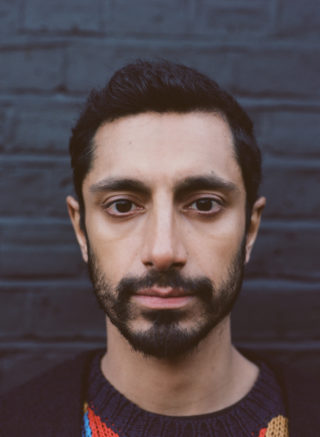
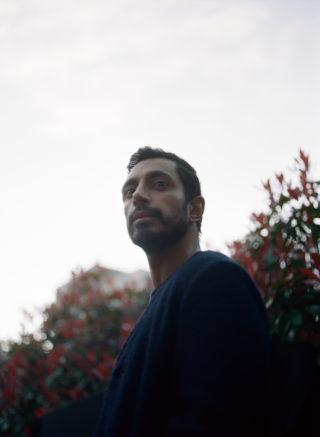
SP: It’s interesting to see how you represent that very melting pot sonically within The Long Goodbye. It almost feels like a culture clash, but one that sounds and feels like harmony. There are parts in Urdu and your mum even features on the album. Musically, was it easy to blend the cultures?
RA: It’s totally second nature and authentic to me. You know, we’re talking about how you build your own language. My past is haweli, but it’s also jungle. Both of them. My present is my Mum speaking in Urdu and it’s also music right now.
SP: Yeah, it feels natural to you, it just feels like your experience.
RA: Exactly. I think it’s just been about trying to find a producer who can understand that. And that has been Redinho for years now, from all the Swet Shop Boys stuff and The Long Goodbye. That’s been my key collaborator, someone with musical knowledge and curiosity, who understands me.
SP: The album opens with ‘The Breakup (Shikwa)’ – a fascinating track that lays the foundation for the rest of the album. In it, you speak about your Kashmir jumper being bloody because you’ve been split in half. I read this as signifying the separation of India and Pakistan. Is that accurate? And if so, how have you seen the effect of that partition personally?
RA: Absolutely. There’s references to Kashmir, there’s references to partition. You know, it’s also about a sense of heartbreak that’s going on right now in real time. And so I guess what makes that history feel alive now is how we still haven’t really faced and reckoned with the legacy and reality of partition. There are no monuments to partition in the UK. Millions of lives were lost in the largest forced migration in recorded history. In terms of how it affected me personally, my family was from North India for generations. After partition, they left and became Pakistani – that’s the first kind of breakup. Then they left Pakistan to come to England – that’s the second breakup. Now, is there going to be a third one? There’s a legacy of migration… there’s a kind of collective memory with immigrant populations: home is always someplace else. My ethnic group, Muhajir, basically means refugee. Urdu-speaking North Indian Indians who went to Pakistan after partition, that’s the name of our ethnic group. So it’s very much alive in our identity and our sense of always not feeling quite at home. And that’s a big part of what’s happening in Mogul Mowgli, this idea of the past is alive in us, for better and for worse. So we have to reckon with it, we have to look back if we want to move forwards.
SP: Let’s dive more into Mogul Mowgli. As well as starring in it, you’ve also written and produced it. It’s received amazing reviews at film festivals. What was the creative process like for you?
RA: It was very collaborative. It was myself and Bassam Tarik (director). We just had a really honest, free-flowing back and forth, and I feel like that kind of collaboration is rare but it’s also crucial, for me at least. It’s a super low-budget British film that we shot in, like, four weeks. It was hot, it was intense and we were doing a lot of rewrites as we were going because the film was evolving. It was a big learning curve for both me, as a producer and filmmaker, and for Bassam. From an acting point of view, it was quite emotional because I went to a very personal place, obviously in writing, and so in that sense, it felt vulnerable and exposing but also very freeing and very liberating.
SP: Would you say that the life of lead character Zed has any similarities to your own?
RA: Would it be hilarious if I said no?
SP: Not necessarily. I don’t want to assume.
RA: We’ve taken our own experiences and we’ve extrapolated from that, and of course, elements of the character might be larger than life, or maybe less self-aware in some cases and more in others, but yeah, I was at least a starting point for the character. I think with Zed, perhaps he’s focusing on the wrong things and he’s not perhaps totally self-aware about how his television success is really costing him. He thinks he’s in competition with everyone rather than realising we’re all actually a link in the chain, part of an ongoing conversation. And his realisation, like the coronavirus realisation we discussed, is that we’re not individuals and the stuff we’re chasing is misguided. I describe it, in a way, as a coronavirus film: you’ve got a workaholic who gets hit by a health crisis, gets locked down in purgatory in a hospital, and has to reassess what’s really matters to him – and he realises it’s his family and wellbeing. And that’s exactly what the journey has been for most of our society.